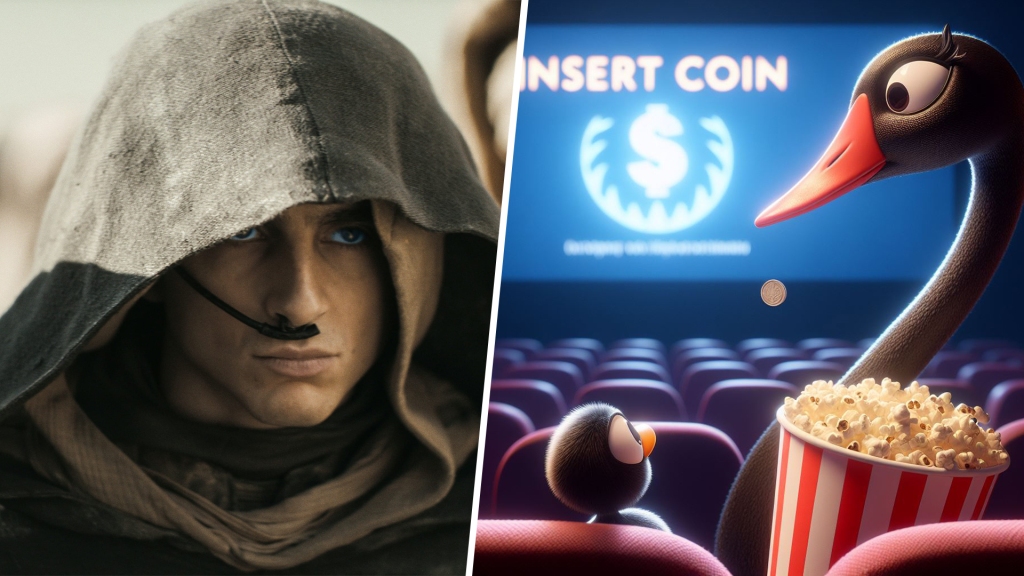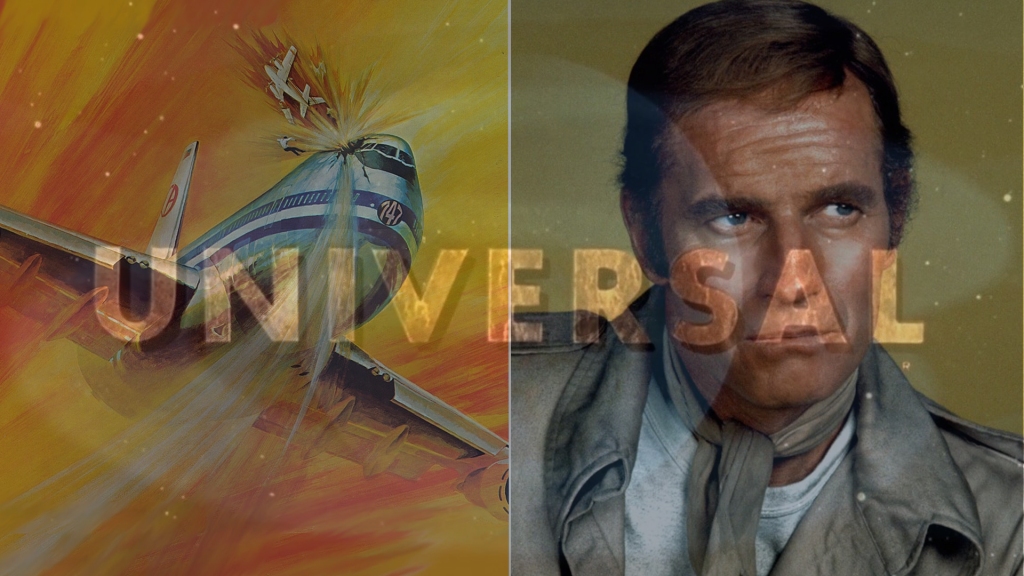

Has Rian Johnson finally found his groove? Having spent the last decade-and-a-half bending genres (Brick, Looper), creatively reinventing cinematic staples at his own peril (Star Wars: The Last Jedi) and refreshing the rather stale and calcified template of a whodunnit mystery (Knives Out), he has finally decided he’d like to dabble in this sandbox for a few more minutes. In fact, this might be where he finds permanent cultural accommodation – if only by way of squatter’s rights – as on top of a deal to produce, write and direct two Knives Out sequels, he has been busy producing and overseeing a Columbo-style TV show Poker Face which is about to be released for public consumption any second now. And if his most recent addition to what is now considered a Knives Out brand is anything t go by, staying within the confines of the whodunnit subgenre was the right choice to make.
Contrary to the 2019 original, Glass Onion can no longer benefit from the element of surprise baked into the stylistic freshness of Johnson’s take on the Christie/Doyle murder mystery, wherein a good chunk of the fun lied in the sleekness of the form, the storyteller’s playfulness when it came to dispensing information and the suave energy of the film’s central character, the detective extraordinaire Benoit Blanc, portrayed so effortlessly by James Bond himself. Therefore, the filmmaker was facing a difficult choice between attempting to reinvent the form once more and identifying the crucial elements of the movie, doubling down on them and moulding them into an identifiable brand. He chose the latter.
Therefore, Glass Onion cannot be seen as innovative or fresh in the same way that its predecessor perhaps could, but by the same token it is not necessarily slipping into the formula we could expect to see in a by-the-numbers Agatha Christie-esque stint like Murder on the Orient Express or See How They Run. Instead, Glass Onion follows its own heart and plays into the idea of following the formula as manipulated by Knives Out, so it is equally formulaic as it is fresh and rambunctious. Or, perhaps more appropriately, it is striving to refresh the formula rather than simply adhere to it.
As such, when the gospel of a refreshed whodunnit according to Johnson is concerned, it almost begins and ends with the central character of Benoit Blanc (Daniel Craig), complete with his signature Southern drawl, a penchant for puzzles and a compulsion to characterize the cases he works on using clever metaphors. Accordingly, the formula also assumes that Blanc would be dropped into a completely new murder case where the viewer would be greeted by a cast of brand-new colourful suspects, this time played by Janelle Monáe, Kathryn Hahn, Edward Norton, Dave Bautista, Kate Hudson, Leslie Odom Jr., Madelyn Cline and Jessica Henwyck, all of whom are vivid, vivacious and voluminously entertaining. Pardon my alliteration.
And finally, the Knives Out recipe would not be complete without cultural references that immediately date the movie, but equally give it some charm and character, and perhaps ensure that the story would be impossible to re-adapt into a different setting without losing some of this charm in the process. Thus, just as Knives Out was permeated with references to the dark days of Trump presidency, Glass Onion settles itself within the timeframe of the early days of the COVID pandemic when vaccines were in development, social distancing was the name of the game, Western societies were in lockdown and Zoom shares were worth in excess of multiple hundreds of dollars a pop. However, what’s truly interesting about the way Rian Johnson weaves – yet again – these cultural references into the narrative is that he does not make the story reliant on the viewer’s intricate knowledge of the circumstances of the time. Just as it wasn’t necessary to be aware of the Trumpian dystopia to make the best out of Knives Out, the same is true here: the pandemic serves mostly as colour and effectively functions as a cinematic timestamp, which dates the movie for better or for worse.
The rest is self-explanatory: Benoit Blanc finds himself invited to a weekend murder mystery party organized by a tech billionaire Miles Bron (Edward Norton), who also has a penchant for clues and wishes to entertain his guests by taking them onto a whodunnit mystery of his own fake murder. However, what he doesn’t know is that every single guest of his – from a manosphere streamer to an aspiring politician, a poop-hot influencer and his former collaborator to whom Bron owes his empire – has a good motive to kill him for real. But that’s just a beginning, as in a typical whodunnit fashion, Glass Onion quickly reveals itself as a complex puzzle, the layers of which Benoit Blanc will have to peel away one by one – just like what you would do with an onion if you didn’t know that at some point you are expected to stop peeling and begin chopping.
Nevertheless, the movie is a perfectly functional and thoroughly entertaining experience that should probably appeal more to cinematic sleuths rather than anyone else, but at the same time it carries enough wide appeal to satisfy anyone purely on the grounds of its comedic value. Because, above all, Glass Onion is a successful comedy with a bit of a dark twist to its nature. It’s fun and brisk mostly thanks to Johnson’s featherlight writing and the fact that his dialogue comes out oh-so-voluminously out of everyone’s mouths. Because – let’s face it – another element of the whodunnit formula and one which is difficult to excise or successfully reinvent is the necessity for talking about what happened, what’s happening and what’s about to happen.
I suppose the refreshing element in the way Johnson’s going about it harks back to the classics of the thriller wherein sometimes the characters would talk about one thing and the filmmaker would show us something else, thus indicating someone is lying through their teeth, or at other times he would allow his characters to simply be wrong. Nevertheless, the way in which information and time are manipulated in the film adds quite considerable value to the already satisfying movie-watching experience, which is additionally bolstered by the simple-yet-often-understated idea of allowing the viewer the necessary latitude to figure out what’s happening in the movie on their own without necessarily undermining the movie as a whole or the storyteller personally.
In fact, I believe because of being a bit more predictable than its predecessor and certainly than many classical sleuth stories Glass Onion consolidates its entertainment value a bit more coherently and furnishes the viewer with a grand old time in front of the TV, even at the expense of its own life expectancy within the cultural zeitgeist. I think at this point nobody expects this movie will enter the memesphere the way The Sixth Sense did in 1999. I don’t suppose it was ever Rian Johnson’s intention to revamp the genre to a Shyamalanian extent and that he was simply trying to tell a story that’s fun to watch, even if its rewatch value would suffer as a result. And even in this context, Glass Onion might find its longevity in a way successful comedies do – not thanks to the possibility to retrace the trail of breadcrumbs and see how the solution was always out there when you were busy chasing red herrings, but thanks to the fact it’s simply capital-F-Fun to hang out with Benoit Blanc, Janelle Monáe, Kate Hudson and the rest of the gang. Hell, even Edward Norton, the method man try-hard that he inescapably is – is delightfully bubbly in this scenario, which. – again – proves unequivocally that Rian Johnson just knows how to write movies that are fun to watch.
So, let the record state that Glass Onion, also known as Glass Onion: A Knives Out Mystery because someone somewhere thought that Knives Out is a more bankable brand than Benoit Blanc (let’s be honest, this should have been titled Glass Onion: A Benoit Blanc Mystery or Benoit Blanc and the Glass Onion), is a fun piece of no-strings-attached entertainment that plays into the established formula of the whodunnit genre just as much as it is attempting to revamp some crucial aspects of it. However, it remains wholly respectful to the fundamental concept of a classical sleuth mystery while introducing levity into the operation with enough style and panache to make Kenneth Branagh collapse into his sofa, cross his arms and pout because never in a million years would he be able to make his Poirot mysteries half as effortlessly successful as either of the Rian Johnson movies are.




Leave a comment